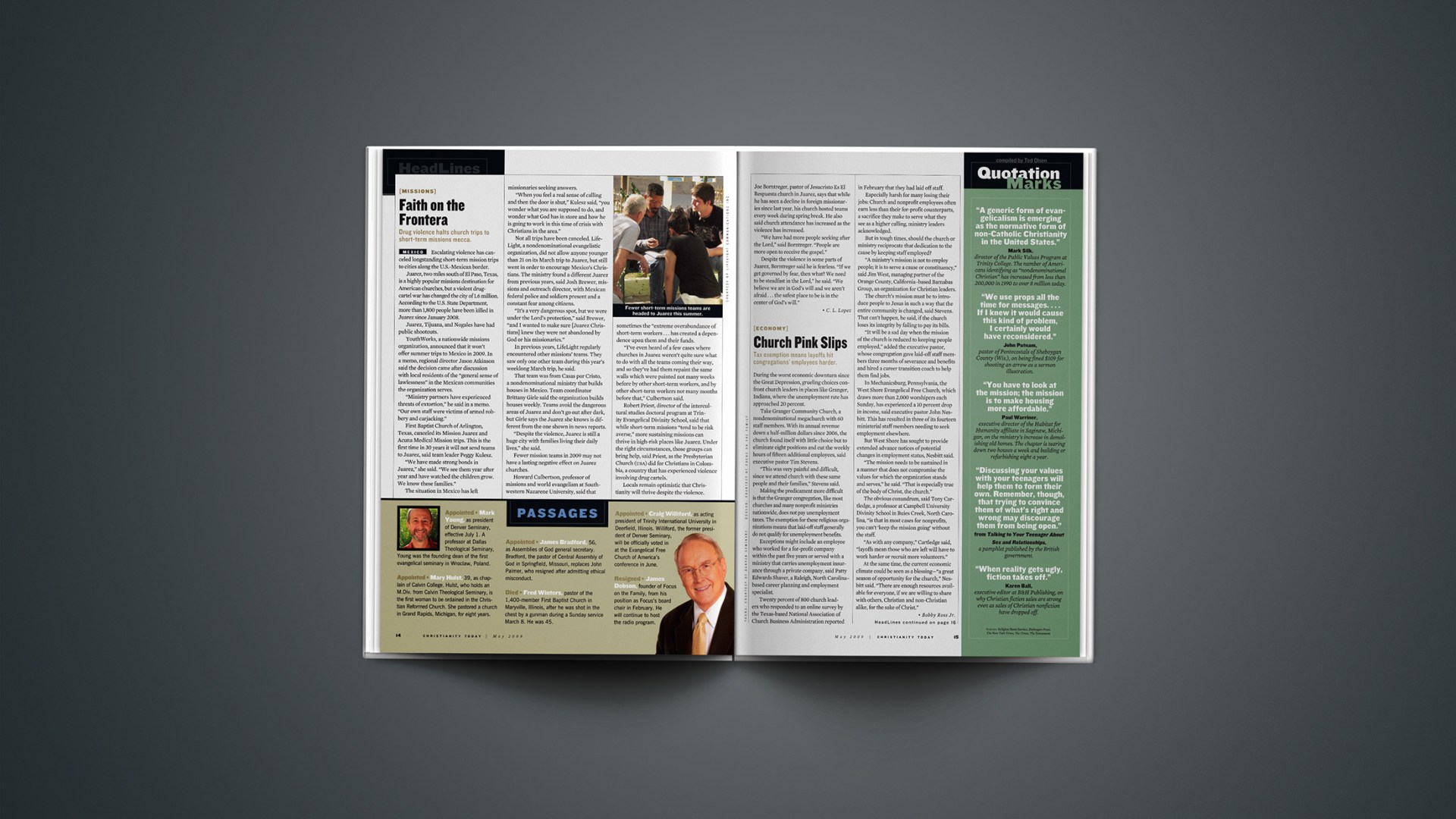During the worst economic downturn since the Great Depression, grueling choices confront church leaders in places like Granger, Indiana, where the unemployment rate has approached 20 percent.
Take Granger Community Church, a megachurch* with 60 staff members. With its annual revenue down a half-million dollars since 2006, the church found itself with little choice but to eliminate eight positions and cut the weekly hours of fifteen additional employees, said executive pastor Tim Stevens.
“This was very painful and difficult, since we attend church with these same people and their families,” Stevens said.
Making the predicament more difficult is that the Granger congregation, like most churches and many nonprofit ministries nationwide, does not pay unemployment taxes. The exemption for these religious organizations means that laid-off staff generally do not qualify for unemployment benefits.
Exceptions might include an employee who worked for a for-profit company within the past five years or served with a ministry that carries unemployment insurance through a private company, said Patty Edwards Shaver, a Raleigh, North Carolina-based career planning and employment specialist.
Twenty percent of 800 church leaders who responded to an online survey by the Texas-based National Association of Church Business Administration reported in February that they had laid off staff.
Especially harsh for many losing their jobs: Church and nonprofit employees often earn less than their for-profit counterparts, a sacrifice they make to serve what they see as a higher calling, ministry leaders acknowledged.
But in tough times, should the church or ministry reciprocate that dedication to the cause by keeping staff employed?
“A ministry’s mission is not to employ people; it is to serve a cause or constituency,” said Jim West, managing partner of the Orange County, California-based Barnabas Group, an organization for Christian leaders.
The church’s mission must be to introduce people to Jesus in such a way that the entire community is changed, said Stevens. That can’t happen, he said, if the church loses its integrity by failing to pay its bills.
“It will be a sad day when the mission of the church is reduced to keeping people employed,” added the executive pastor, whose congregation gave laid-off staff members three months of severance and benefits and hired a career transition coach to help them find jobs.
In Mechanicsburg, Pennsylvania, the West Shore Evangelical Free Church, which draws more than 2,000 worshipers each Sunday, has experienced a 10 percent drop in income, said executive pastor John Nesbitt. This has resulted in three of its fourteen ministerial staff members needing to seek employment elsewhere.
But West Shore has sought to provide extended advance notices of potential changes in employment status, Nesbitt said.
“The mission needs to be sustained in a manner that does not compromise the values for which the organization stands and serves,” he said. “That is especially true of the body of Christ, the church.”
The obvious conundrum, said Tony Cartledge, a professor at Campbell University Divinity School in Buies Creek, North Carolina, “is that in most cases for nonprofits, you can’t ‘keep the mission going’ without the staff.
“As with any company,” Cartledge said, “layoffs mean those who are left will have to work harder or recruit more volunteers.”
At the same time, the current economic climate could be seen as a blessing—”a great season of opportunity for the church,” Nesbitt said. “There are enough resources available for everyone, if we are willing to share with others, Christian and non-Christian alike, for the sake of Christ.”
* Correction: This article originally stated that Granger Community Church is a nondenominational congregation. It is a United Methodist church. (Return to text)
Copyright © 2009 Christianity Today. Click for reprint information.
Related Elsewhere:
Christianity Today has more on the economic crisis and money & business.










